CR-Psychiatry Program: Working Memory
Click to try FREE for 15-Days.
These exercises train the ability to temporarily maintain and process information necessary for cognitive activities.
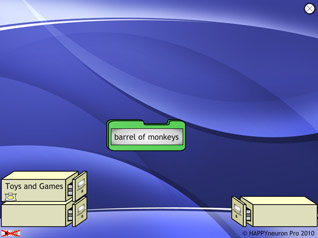
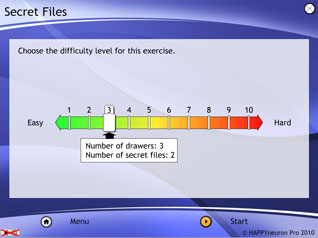
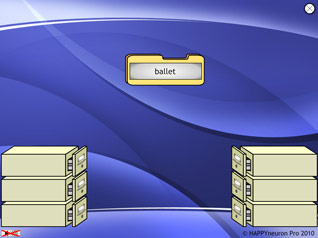
Secret Files
The task
This task requires the patient to catch words before they fall to the ground and file them in the correct secret drawer. Each drawer is devoted to a category. When he can't see the file categories in advance, he needs to discover them by himself (trial and error) and deduce which word is associated with which file.
What it trains
This exercise primarily targets concentration and executive functioning like deductive reasoning to successfully solve a problem. In this task, the user will need to engage processes such as organizing word categories, manage his time, and focus your attention to remember the right file categories, consider errors and their consequences, control his answers, and plan ahead.
Parameters
10 levels have been specially selected to ensure an easy start and grant a regular progression. The parameters involved are the total number of drawers (from 2 to 6), and the number of secret files among them.



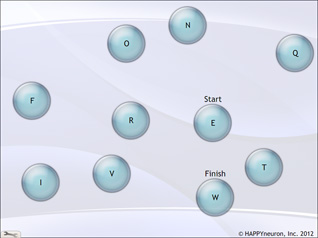
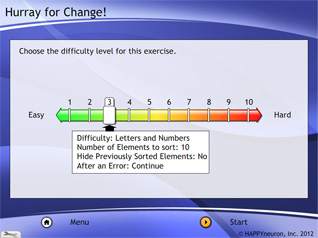
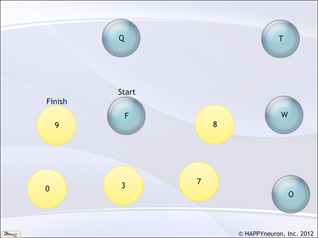
Hurray for Change!
The task
There are two tasks to this exercise. In the first part, series of 4 to 16 letters or words must be linked in alphabetical order. The second part demands to alternately sort two series of items.
What it trains
In addition to mental flexibility and strategy skills, this exercise requires concentration and visual and spatial exploration skills. Visual and verbal working memory skills are also stimulated, as well as language skills which are necessary when letters or words are involved. This game develops cognitive flexibility, that is, the ability to engage in one activity, disengaging andthen re- engaging. In real life, such a situation can occur when being engrossed in paperwork, suddenly the phone rins and must be answered, after which the person has to get back to their original task. The skills called upon in this game are constantly used in our daily lives. Another example is scanning for a name on a list or scanning a monitor for airline flight departures or arrivals screen. Further, in everyday life, one may use executive functions when reorganizing files or preparing the house for the holidays by simultaneously cooking various dishes when everything has to be ready at a different time!
Parameters
10 levels have been specially selected to ensure an easy start and grant a regular progression. The parameters involved are the types of items to sort (Letters and Numbers, Words and easy numbers, Words and long numbers, Words of 2 categories), the number of elements to sort (from 8 to 10), the help given and the necessity to restart after an error.



Click to try FREE for 15-Days.
